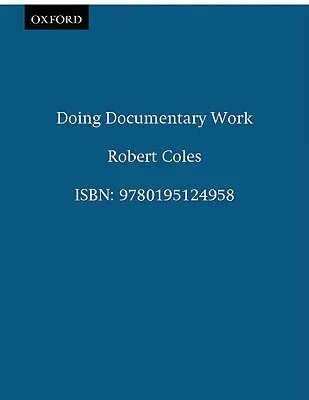Doing Documentary Work
By (author): "Robert Coles"
Publish Date:
1997
ISBN0195124952
ISBN139780195124958
AsinDoing Documentary Work
Original titleDoing Documentary Work (New York Public Library Lectures in Humanities)
In this thought-provoking volume, the renowned child psychiatrist Robert Coles, author of The Children of Crisis series, offers a penetrating look into the nature of documentary work. Utilizing the documentaries of writers, photographers, and filmmakers, Coles shows how their prose and pictures are influenced by the observers' frame of reference: their social and educational background, personal morals, and political beliefs. He discusses literary documentaries: James Agee's searching portrait of Depression-era tenant farmers, Let Us Now Praise Famous Men, and George Orwell's passionate description of England's coal miners, The Road to Wigan Pier. Like many documentarians, Coles argues, Agee and Orwell did not try to be objective, but instead showered praise on the "noble" poor and contempt on the more privileged classes (including themselves) for "exploiting" these workers. Documentary photographs can be equally revealing about the observer. Coles demonstrates how famous photographers such as Walker Evans and Dorthea Lange edited and cropped their pictures to produce a desired effect. Even the shield of the camera could not hide the presence of the photographer. Coles also illuminates his points through his personal portraits of William Carlos Williams; Robert Moses, one of the leaders of the Student Nonviolent Coordinating Committee during the 1960s; Erik H. Erikson, biographer of Mahatma Gandhi and Martin Luther; and others. Documentary work, Coles concludes, is a narrative constructed by the observer and is meant not only to represent "reality" but inevitably to interpret it.
